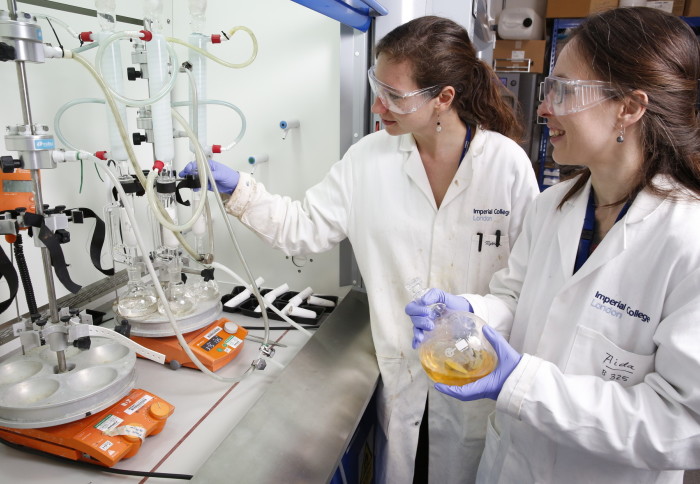Imperial College London to accelerate 'deep tech’ moonshots to market

Deep Tech startup Lixea are developing a novel chemical process to convert woody biomass to biofuels.
Imperial College London has announced the launch of a pioneering Institute for Deep Tech Entrepreneurship.
The Institute aims to drive the development of groundbreaking, ambitious technologies with world-changing potential, and help them find a pathway to market.
Watch the video of the launch for the Institute for Deep Tech Entrepreneurship below.

"Deep Tech holds great promise for helping to solve all sorts of global challenges - from climate change and food and water insecurity to antimicrobial resistance and the need for continual medical advances." Professor Hugh Brady President of Imperial College London
Many of the world’s most pressing challenges - from climate change, developing sustainable food and water systems, and improving human health and wellbeing - depend on the successful commercialisation of fundamental, curiosity-driven science and engineering. These innovations are often referred to collectively as “deep tech” and include the development of technologies like grid-scale energy storage, clean and renewable energy generation, vaccines and drug discovery, and new computing paradigms.
Developing deep tech products or services is time-consuming, requiring lengthy research and technical development before they reach the market. This can deter investors and means that projects with great potential that don’t get early-stage support go undeveloped.
Through its DT Prime Fund, the Institute aims to secure £50 million of philanthropic support over the next 10 years to support the commercialisation of fundamental science and engineering discoveries with the potential for transformative societal impact. The revolutionary approach to incubation will have a focus on de-risking technologies by helping Imperial scientists to achieve technical milestones that address key uncertainties in the eyes of investors.
Vibrant innovation ecosystem
The Institute will use Imperial’s vibrant innovation ecosystem as a research tool to develop evidence-based best practices for policy makers and entrepreneurs who want to unlock Deep Tech from universities globally: collecting data on ventures from their earliest, pre-commercial stages, and systematically studying the impact of interventions aimed at addressing commercialisation challenges.
"Our goal is to enable commercial applications of Deep Tech at Imperial that would otherwise go unfunded, and in doing so to create new high quality deal flow for commercial investors and partners." Professor Ramana Nanda Imperial College Business School
Professor Hugh Brady, President of Imperial College London, said: “Deep Tech holds great promise for helping to solve all sorts of global challenges - from climate change and food and water insecurity to antimicrobial resistance and the need for continual medical advances. We urgently need new tools and commercialisation models to help these groundbreaking advances to reach their potential. Our Institute for Deep Tech Entrepreneurship will help accelerate these deep tech innovations to market, helping to deliver the solutions society needs.”
Professor Ramana Nanda, Professor of Entrepreneurial Finance at Imperial College Business School and Academic Lead at the Institute for Deep Tech Entrepreneurship, said: “Deep tech entrepreneurship is a foundational pillar for addressing society’s Global Challenges, but Deep Tech, which is increasingly developed in universities, too often fails to achieve its potential. Our goal is to enable commercial applications of Deep Tech at Imperial that would otherwise go unfunded, and in doing so to create new high quality deal flow for commercial investors and partners. Equally important, we aim to develop resources and evidence-based best practices for the wider community of entrepreneurs, regulators and policy makers, to support the development of a vibrant Deep Tech ecosystem in the UK and beyond.”
The Institute for Deep Tech Entrepreneurship is one of Imperial's Academic Strategy projects, aiming to deliver impact and benefit to society. It will work across College and the co-directors from each of Imperial’s four faculties as well as the Enterprise division.
Article text (excluding photos or graphics) © Imperial College London.
Photos and graphics subject to third party copyright used with permission or © Imperial College London.
Reporter
Conrad Duncan
Communications Division
Deborah Evanson
Communications Division
Laura Singleton
Communications Division